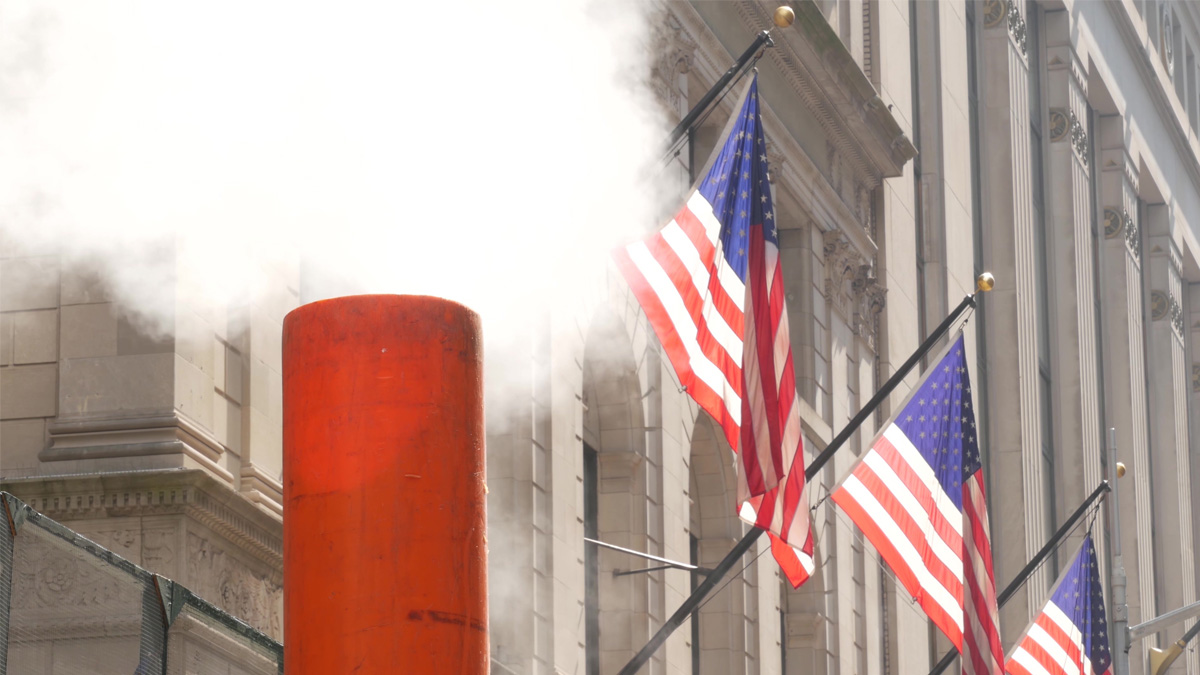Take responsibility, even if it’s not your fault – it can change your life
Jake Humphrey explores why the balance between fault and responsibility is so vital for business leaders to understand

When I think back over the past four or five years of our High Performance podcast, there are a handful of lessons that are useful to me on a daily basis. Probably the most important is separating fault from responsibility.
There’s no doubt that for a long time I would say to myself: “Well, that hasn’t worked out, but it’s not my fault, so, I’m just going to move on and do something different.” I think this idea of blaming others led me down a path of not having an awful lot of resilience.
Then we had a conversation on the podcast about separating fault and responsibility and I had this dawning realisation that there are lots of things in my life that are not my fault but are my responsibility. Once we understand the difference between the two, I believe it opens up a whole world of possibilities.
For me, the difference between fault and responsibility is understanding that something may happen that you’re not in control of, but you are in control of how you respond to it. You need to develop this mindset that you’re going to deal in 100 per cent responsibility.
It’s easy to be responsible for the things that we feel we’re in control of, or that we feel are ours to own, but it’s much harder to be responsible for things that we don’t have any control over. But this is where the magic happens. If we say to ourselves that we’re going to take 100 per cent responsibility for all areas of our life, including the things that other people are running, then our responsibility around those things becomes how do I help them and get the best out of them.
If I look back over my life there are certainly things that I was responsible for, failing my A-levels for example. I probably didn’t work hard enough at school. However, only a few months before I took my exams, my grandma, who was struggling with her mental health, took her own life. Now that isn’t my responsibility and it’s not my fault that it happened. But it is my responsibility to find a path through it.
That is a very personal story. But take the pandemic. Every0ne reading this column knows what it was like to live through Covid but it isn’t the fault of any one of us. Yet we would all readily admit we were responsible for how we responded to the impact of Covid.
I believe this is a really powerful way of living. As we get older and start looking back over our life, we realise there is a myriad of moments that are not our responsibility. Maybe you’re carrying a trauma from your childhood. Maybe you’ve got a difficult relationship with your boss. Maybe you work in a business that’s been taken over by another company and the culture has changed completely. Maybe the job you do today isn’t the job you thought it was going to be. Maybe, if you’re an entrepreneur, the costs of heating your property or paying your rates have suddenly rocketed and people don’t go to the high street as often. None of those things are our fault. But as business leaders all of us have a responsibility to find a way through that.
This is not me being harsh and saying that whatever happens you must have the answer. This isn’t about having all the answers but about having a mindset that you’re going to do everything you can to deal with this. Even when the end result is a painful one – if it turns out that what happened is terminal for your business or if you’ve lost a loved one – the responsibility becomes how best to deal with that.
This is not a solo mission either. Taking 100 per cent responsibility is all too often about knowing when you need to reach out. I interviewed Arnold Schwarzenegger recently. He said he gets offended when people call him a self-made man because he thinks that’s doing a disservice to those who have been incredibly supportive and helped him to where he is today. I think that when times are tough, we have a responsibility to reach out, talk and share our story.
People in leadership positions also have a responsibility not to have the answers all the time, to sometimes say: “I don’t know what we’re going to do.” They have a responsibility to be vulnerable. This allows the other people around them in the organisation to be exactly the same. And I’m a firm believer that when people can be vulnerable, people can be powerful.
All of this stems from the idea that things will happen that are not your fault. Understanding that it’s still your responsibility is your armour, helping to remove the fear of those bad days coming.
Jake Humphrey is the host of the High Performance podcast and co-founder of Whisper Group. For more on this topic check-out the High Performance episodes with Shane Parrish here, Dr Rangan Chatterjee here and Mark Manson here



